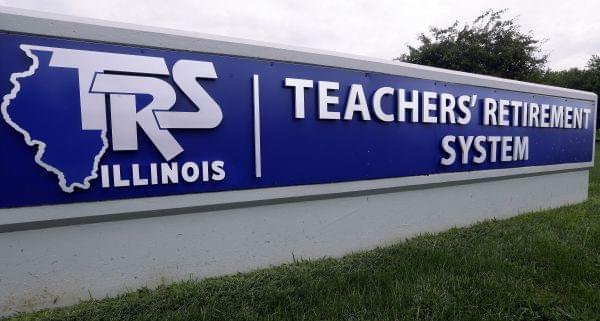Illinois’ Pension Payment Expected To Increase By $400M

The board of the Illinois Teachers Retirement System, which serves more than 400,000 teachers outside of Chicago, voted to lower its expected rate of return on investments Friday in Springfield. Seth Perlman/AssociatedPress
Officials with the Teachers' Retirement System made a decision Friday that could add another $421-million to Illinois’ annual pension costs. The TRS board voted to accept the recommendation of state actuaries to lower the expected rate of return on investments by half a percent. The move could lead to higher taxes or massive cuts to education and social services.
Trustees lowered the assumed rate of return from 7.5 percent to 7 percent. An actuary firm recommended the move because of reduced inflation expectations nationally. That in turn will increase the amount of money the state is required to pay into the fund.
Dick Ingram, the board’s executive director, warned that the rate could go even lower.
"If you ask me my personal opinion right now, what I would expect, what I would vote for and what I would work for would be another reduction in the springtime, the next time around," he said.
Governor Bruce Rauner says the prospect of having to find another $400 million in the current budget structure is devastating.
“This has massive impact on our budget. $400 million – we’ve already got a huge deficit," he said. "That could impact our school funding, that could impact our human services even more, that could impact our economy. Now more businesses that would like to grow in Illinois will look at that and say, ‘Gosh, there’s another burden on the taxpayers in the future. Maybe we shouldn’t invest in Illinois.’”
Illinois has the worst-funded pensions of any state, with $111 billion in unfunded liabilities.
Rauner wanted the board to delay the vote so the state could plan for the higher costs.
Links
- TRS: State Will Have To Pick Up More Of Teacher Pensions
- Rauner Reports ‘Progress’ On Overhaul Of State Pensions
- Illinois Can’t Make Next Pension Payment
- Union Brings Another Pension Lawsuit: How It’s Different Than The Others
- Pension Law Dead For Good; Madigan Won’t Appeal
- Pension Case May Not Be Done: Signals It Could Go To U.S. Supreme Court
- The Problem with Pensions (re-broadcast)
- Pension ‘Deal’ Also Caught In Impasse
- Illinois Justices Overturn State’s Landmark 2013 Pension Law
- Cullerton Wants Reconsideration of Pension Consideration
- State Paying Pension Debt With Funds Meant For Students
- More coverage from the State Journal-Register

